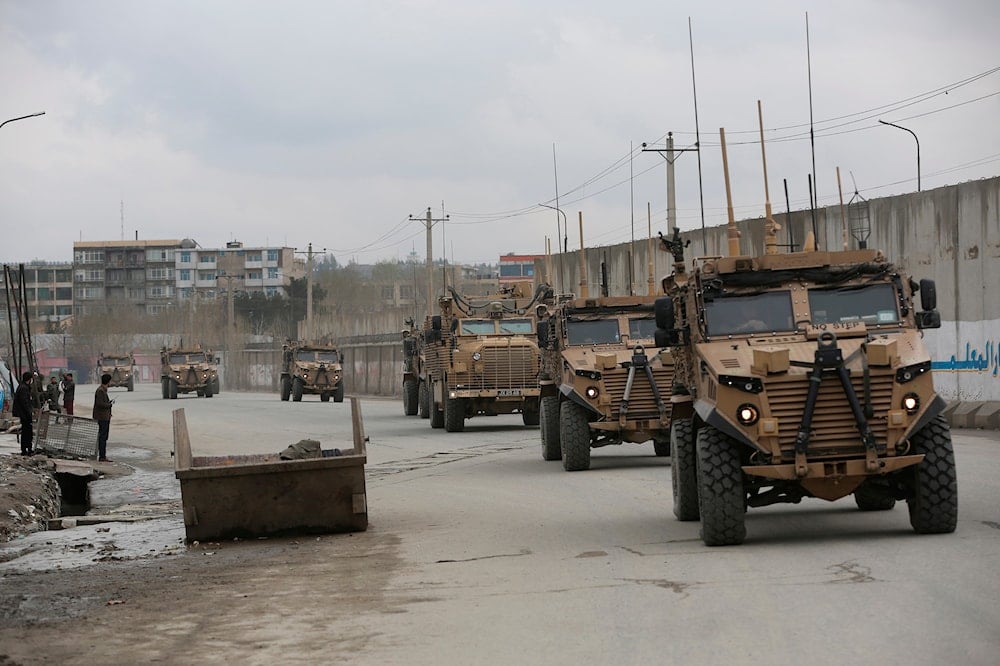Kabul evacuation whistleblower wins case against UK government
Civil servant Josie Stewart was unlawfully dismissed in 2022 after revealing failures in the Afghanistan withdrawal to the BBC, a tribunal has ruled.
-

In this file photo dated March 25, 2020, British troops are seen with NATO-led Resolute Support Mission forces in Kabul, Afghanistan. (AP)
A civil servant who exposed the disorderly withdrawal from Afghanistan and Boris Johnson’s role in evacuating a pet charity from Kabul has won a landmark unfair dismissal case against the government.
A three-judge employment panel unanimously ruled that the Foreign, Commonwealth, and Development Office (FCDO) unfairly dismissed Josie Stewart in 2021 after she leaked information in the public interest.
Stewart was dismissed after losing her security clearance. It was later revealed that she had informed the BBC about failures in the Kabul evacuation and leaked emails which indicated that then PM Boris Johnson had prioritized evacuating staff from the Nowzad animal charity over more urgent cases.
During a hearing last May, Ben Collins KC, representing the FCDO, argued that whistleblowing rights did not guarantee security clearance for individuals with a history of leaking information.
However, Stewart’s barrister, Gavin Millar KC, countered that accepting the FCDO’s position would severely undermine the Public Interest Disclosure Act 1998 (PIDA), which is designed to protect whistleblowers.
In a landmark ruling issued on Tuesday, the tribunal stated, "The tribunal considered that it was reasonable for the claimant [Stewart] to go to the UK’s public service broadcaster when relevant information and/or allegations had already been put into the public domain … and government ministers were publicly disputing them."
It added, "Was the claimant’s belief that she made the disclosure in the public interest a reasonable belief? The tribunal found that it was. The prime minister and foreign secretary were denying things that the claimant believed to be true, based on what she had observed in the course of her work."
The tribunal also upheld Stewart’s claim of unfair dismissal. It said, "The tribunal considered that no reasonable employer, acting reasonably, could base a decision to dismiss an employee in the claimant’s position on a process which failed to engage in any way with the case that she was putting forward. This was sufficient to lead the tribunal to conclude that the dismissal was unfair."
However, the panel acknowledged that suspending her while her security clearance was under review was unavoidable, as the role required such clearance.
Stewart’s solicitors, James and West, a law firm specializing in whistleblowing cases, described the ruling as groundbreaking, marking the first time a civil servant was recognized as having protection from disclosures to the media.
Millar argued before the panel that Stewart’s whistleblowing exposed the serious risk to the safety and lives of "highly vulnerable individuals" facing potential Taliban retribution, as well as a government communication strategy that masked the extent of the UK's failure to protect them.
An FCDO spokesperson said, "We will review the findings of the tribunal and consider next steps."

 3 Min Read
3 Min Read








